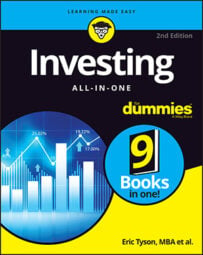- Low expenses: Select a money market fund that does a good job of controlling its expenses. The operating expenses that the fund deducts before payment of dividends are the biggest determinant of yield. All other things being equal (which they usually are with different money market funds), lower operating expenses translate into higher yields for you.
Within a given category of money market funds (general, Treasury, municipal, and so on), fund managers invest in the same basic securities. The market for these securities is pretty darn efficient, so “superstar” money market fund managers may eke out an extra 0.1 percent per year in yield, but not much more. Lower expenses don’t mean that a fund company cuts corners or provides poor service. By attracting more money to manage, larger funds are able to manage money for a lower expense percentage.
- Tax appropriate for your situation: With money market funds, all your return comes from dividends. What you actually get to keep of these returns is what’s left over after the federal and state governments take their cut of your investment income. If you invest money that’s held outside a retirement account, and you’re in a high tax bracket, you may come out ahead if you invest in tax-free money market funds.
Tax-free refers to the taxability of the dividends that the fund pays. You don’t get a tax deduction for money that you put into the fund as you do with certain retirement accounts. If you’re in a high-tax state, a state money market fund — if a good one exists for your state — may be a sound move.
- Other attractive fund offerings: Consider what other investing you plan to do at the fund company where you establish a money market fund. Suppose that you decide to make mutual fund investments in stocks and bonds at a specific fund company. In that case, keeping a money market fund at a different firm that offers a slightly higher yield may not be worth the time and administrative hassle, especially if you don’t plan on holding much cash in your money market fund.
- Associated services: Good money market funds offer other useful services, such as free check writing, telephone exchange and redemptions, and automated electronic exchange services with your bank account.
You may open and maintain your mutual fund account via the fund’s toll-free phone lines, the mail, or the company’s website. You don’t really get much benefit from selecting a fund company with an office in your area (although you may feel some peace of mind).

